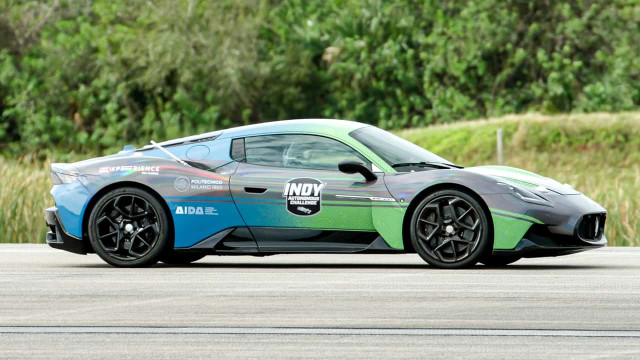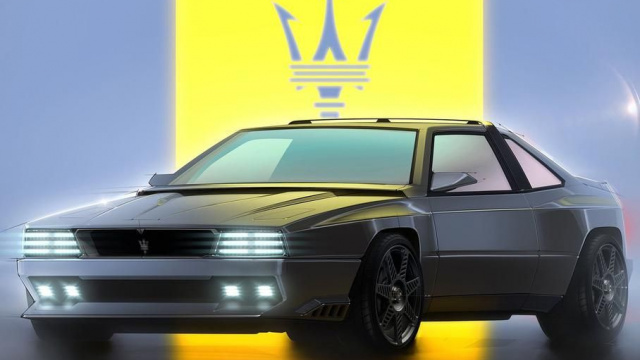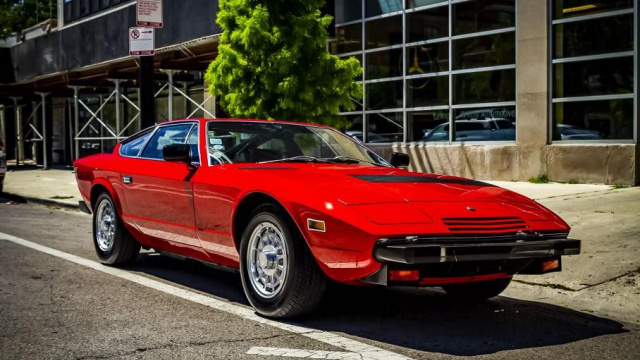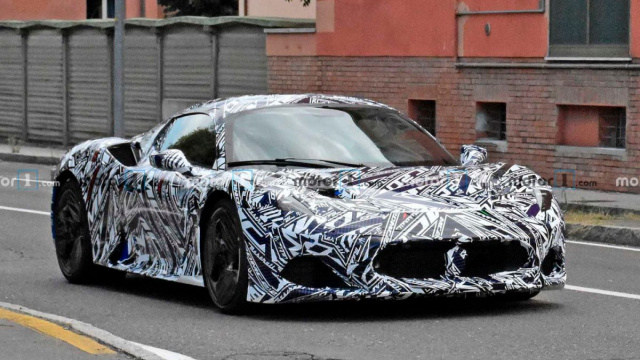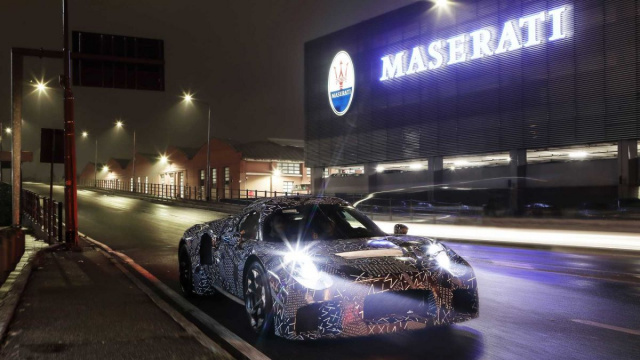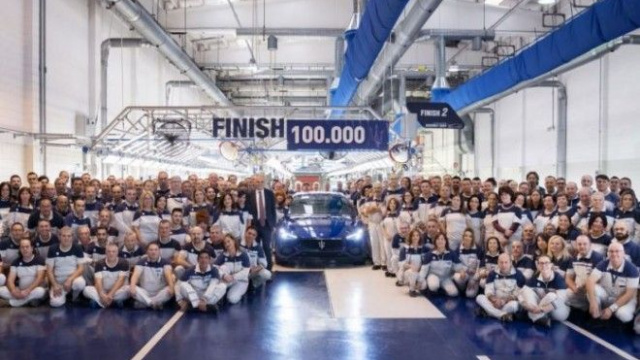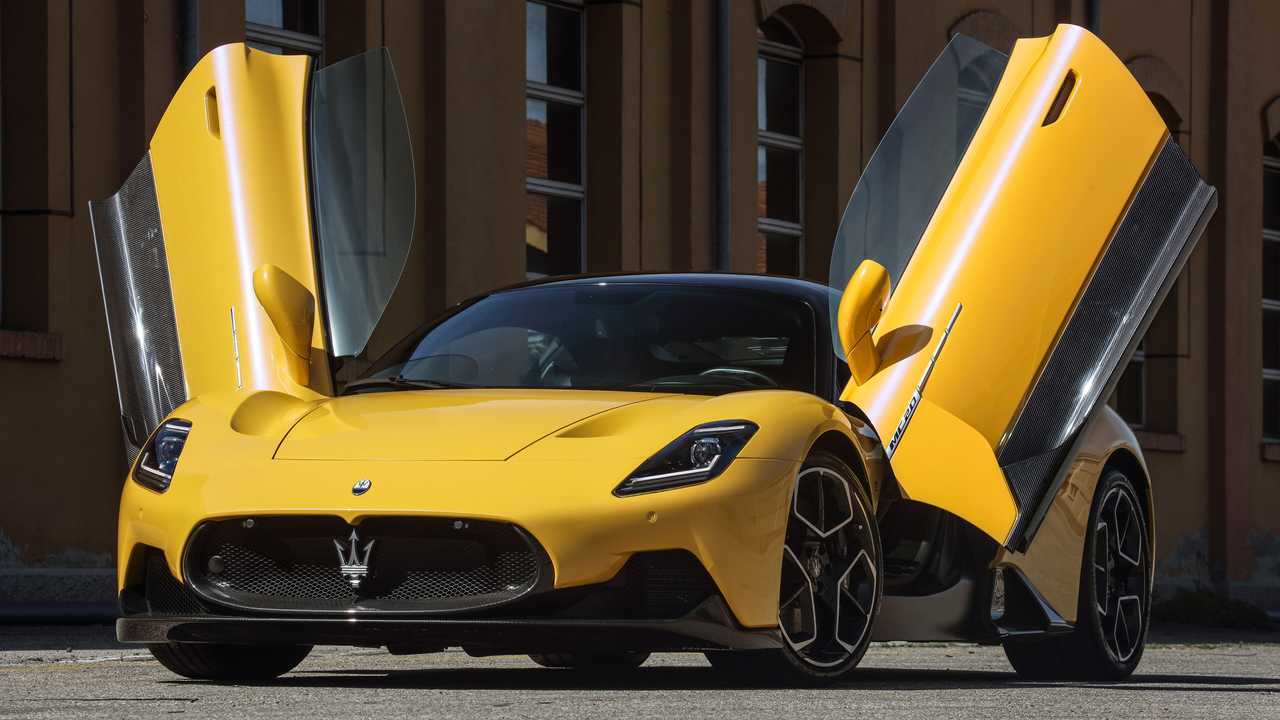Maserati Eyes Revival of Gasoline Supercars as EV Enthusiasm Dims
Several months have passed since Maserati decided against the fully electric MC20, recognizing that enthusiasts are deeply passionate about driving robust internal combustion engines. This decision was outlined in an official communication to Motor1 by a company representative in March. Consequently, it's expected that the esteemed Modena-based manufacturer is now focusing its resources on gasoline-powered vehicles.
Davide Danesin, Maserati’s Head of Engineering, shared with Autocar that there is a prevalent apprehension surrounding battery-powered supercars. This unease likely mirrors the broader sentiment found across various high-performance vehicles, from economical hot hatches to exclusive hypercars. He acknowledged that a segment of customers still desires purely mechanical vehicles, as demonstrated by affluent buyers who showed no interest in an electric variant of the MC20.
The reluctance primarily arises from the added components that electric vehicles necessitate, leading to increased complexity, additional weight, and other associated drawbacks. In response, Maserati plans to cater to this demand by offering an authentic internal combustion experience through their Nettuno V-6 engine. Furthermore, there's potential for the return of manual gearboxes, which could even make a notable comeback.
Since the mid-2000s, Maserati hasn't marketed a three-pedal vehicle. However, Danesin envisions that a manual transmission could feature in a limited edition model: “Creating a purely mechanical car naturally aligns with incorporating a traditional gearbox and shifter. It perfectly matches our philosophy and mindset. Therefore, I genuinely believe we will pursue this in the future.”
Collaboration with Alfa Romeo
Santo Ficili, CEO of both Alfa Romeo and Maserati, emphasized that the two iconic Italian brands will deepen their collaboration moving forward. This partnership hints at the development of a jointly engineered gasoline-powered supercar, potentially following the footsteps of the 33 Stradale, which partially utilized the carbon tub and aluminum subframes from the MC20.
Autocar suggests that a Maserati-branded supercar might evolve from the Granturismo-based GT, featuring an enhanced version of the twin-turbo 3.0-liter engine, surpassing the 621 horsepower output of the MC20 and its MCPura successor. This additional power would likely be achieved without any electric assistance.
Market Considerations and Challenges
An Alfa Romeo counterpart is also reportedly in the works, which would help in achieving economies of scale and presenting a robust business proposition. Nonetheless, Cristiano Fiorio, Alfa Romeo’s marketing chief, recently mentioned that a successor to the 33 Stradale shouldn't be hurried, as the primary focus remains on models aimed at higher sales volumes.
It's understandable why manufacturers might prioritize hybrids and electric vehicles, given the tightening emissions regulations that make investing in large-displacement gasoline sports cars less viable. Additionally, higher taxes on pure internal combustion engines in regions like Europe pose another hurdle for both automakers and consumers.
For instance, in Ireland, the BMW M3 commands a price premium of €17,350 ($20,000) over the M5, attributable to the latter's lower emissions through its plug-in hybrid configuration.
